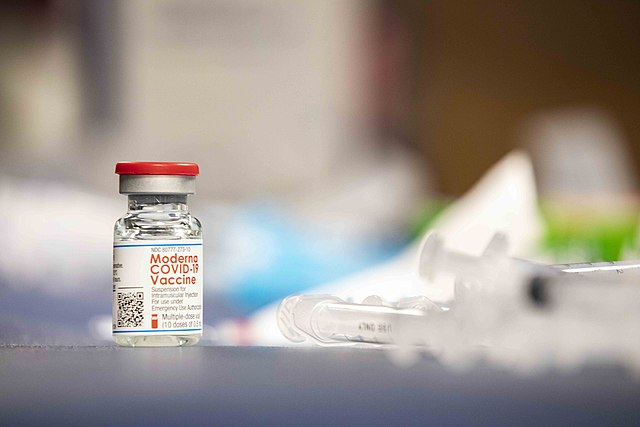‘A way to give back to our community’: Pitt vaccine clinics continues to distribute shots
Melissa McGivney, the associate dean for community partnerships at the School of Pharmacy, says making vaccines accessible and getting everyone vaccinated is the key to a healthier community.
June 2, 2021
Despite the majority of Pitt students leaving campus for the summer, Jack Corey, a third-year pharmacy student, said he hasn’t noticed a significant decrease in visitors to the University’s vaccine clinics this summer. Corey said he believes a consistent number of shots have been provided to students and the Pitt community.
“We’ve mostly been doing a consistent amount of shots at these Nordenberg clinics, so I imagine it’ll dwindle a little bit at some point, but I do think it’ll also pick back up again once we’re doing like all three vaccines per day and when students come back in the fall,” Corey said.
Corey works at the Nordenberg Hall vaccine clinic as a paid summer student pharmacy intern alongside a staff of approximately 10 people. Corey said the clinics are running smoothly and since Pitt’s first on-campus clinic in January, things are a lot more organized and the staff has formed a routine.
“Things were hectic when we first started at the end of January, but that’s because there was just a really high demand for it and it was really busy. We now have a good workflow, and slowly formed a routine,” Corey said. “Every staff member is really friendly, and we always have enough people to do what needs to be done each day.”
Melissa McGivney, the associate dean for community partnerships at the School of Pharmacy, is leading the University’s PittCoVax initiative to provide vaccine clinics to students, staff and the Pittsburgh community. McGivney said making vaccines accessible and getting everyone vaccinated is the key to a healthier community.
“We’re in the midst of an unprecedented pandemic, and when you look at it, in order for us all to be in a place where we can be healthy, we need to be able to get individuals vaccinated and get them vaccinated in a way that they feel that they can be heard and their questions can be answered,” McGivney said.
McGivney helped set up more than 40 clinic days as of June 1 where both volunteers and staff administered more than 20,000 vaccine doses. The University led this initiative through the Federal Retail Pharmacy Program according to University spokesperson David Seldin.
“Pitt applied to be a point of distribution for COVID-19 vaccines through the PA Department of Health in early January,” Seldin said. “University Pharmacy, as a part of the Pennsylvania Pharmacists Care Network/CPESN, was able to apply to be a part of the Federal Retail Pharmacy Program (FRPP) and began receiving vaccines in April.”
Seldin said the clinic is open to all Pitt students, employees, families, friends, as well as the general public.
“Clinic staff are also always happy to talk through specific health questions and concerns about the vaccine,” Seldin said. “Drop-ins are encouraged.”
Seldin said patients can register and schedule an appointment through Pitt’s portal using access code “panthers,” or patients can simply walk in during regular clinic hours — Wednesday from 1 to 4:30 p.m. and Thursday from 10 a.m. to 4:30 p.m. throughout the summer.
Corey said the Nordenberg Hall clinics vaccinate about 60 to 80 individuals per day and while they administer all three of the FDA approved vaccines — Moderna, Pfizer and Johnson & Johnson — they only administer one type of vaccine per daily clinic.
“Right now we do one vaccine type per day, so for example on Wednesday if it’s a Moderna day, we will only administer the Moderna vaccine that day,” Corey said. “We hope to eventually get to a point where we can give whichever vaccine the patient wants regardless of the day they come in.”
McGivney said the vaccination efforts would not be possible without the help of the University Pharmacy, as well as numerous volunteers working together with the Pittsburgh and campus community.
“One thing that I think is incredibly special about this effort has been the coming together of our campus community,” McGivney said. “We’ve had over 100 volunteers from across the campus with individuals that have clinical backgrounds and everyone has showed up, because they want to be a part of getting us all through this pandemic and we couldn’t have done this level of vaccination effort without everyone jumping in.”
McGivney said these vaccination efforts have been a way to give back to the Pittsburgh community and attributes the success of the vaccine clinics to the expertise of the staff and volunteers.
“We’re all in this together, the resources we have at the University along with the expertise of faculty, staff and students are really incredible,” McGivney said. “This has been an opportunity for us to give back to the community at large, with the people that we have.”



